Overview
The University of Chicago offers an opportunity for MA students at the University to pursue a certificate in Education and Society. To qualify for the certificate, students must first apply and be accepted into a Master’s program at the University. Once accepted into such a program, students can declare their intention to complete a certificate in Education and Society. The recommended course of study for this certificate program is the Master of Arts Program in the Social Sciences (MAPSS). Students in Master’s programs in the Harris School of Public Policy are also welcome to apply, if the requirements of the Certificate can be completed within the parameters of their given program.
The Education and Society MA Certificate Program builds on the broad expertise of Committee on Education faculty across the University whose work probes questions of fundamental significance to education. Using the tools of the social science disciplines, these faculty work to better understand how institutional and social contexts, notably schools, shape child development and learning and how schools, in turn, shape society. Understanding this process requires an interdisciplinary lens that combines perspectives from multiple social science disciplines. For example, psychologists are interested in individual development, economists study skill formation (or the development of “human capital,”) and sociologists investigate the role of schooling in processes of social stratification. Consequently, a psychologist looking at schooling might see how children gain cognitive skills and develop identities and attitudes toward learning; an economist might think about how incentives shape teacher and student effort and how such effort pays off in skills and labor market returns; and a sociologist would see how school organization shapes social networks, aspirations, and opportunities.
Each of these lenses is valuable, but a deep understanding of the relationship between individual development, the schooling process, and society requires understanding each of these disciplinary frameworks and how they interact. Students in the Education and Society certificate program complete courses in a range of social science fields that regard educational questions from diverse disciplinary perspectives.
Our curriculum offers coursework in three areas: Courses in the Individual Development and Learning area focus on processes of child and youth skill formation, including such questions as: How do children learn to speak, to read, and to reason mathematically? How can classroom instruction promote such learning? How can school organization support such instruction? How do processes of identity formation and mindset development shape student learning? Coursework in the area of Schooling and Society focuses on a different set of questions, related to schools as social institutions: Does schooling increase or reduce social inequality? How do various cultural, family and neighborhood contexts shape the aims, processes and outcomes of education? What are the social functions and purposes of schooling? Finally, courses in Educational Policy and Evaluation focus on strategies for improving schooling and methods for the evaluation of educational interventions, including principles of research design, statistical analysis, and program evaluation. These courses probe questions such as: What works for improving reading instruction? Are charter schools more effective than traditional public schools? What are the best ways to attract and retain talented teachers to work in under-resourced schools?
At the heart of the Education and Society curriculum is a concern with how schools reconcile the tasks of child and youth cognitive development, identity formation, and socialization with the changing role of schooling in society and widespread concerns about social inequality and mobility. The program particularly emphasizes the need to improve schooling for young people growing up in cities, and, drawing on resources from the Urban Education Institute, in Chicago in particular. Completing a certificate in Education and Society will prepare students for PhD study in education or a social science discipline or for professional positions at research institutions, government agencies, or nonprofit organizations.
Requirements for the Education and Society Certificate
Students who complete the Education and Society certificate program undertake a program of study comprised of four graduate courses, including the following requirements, in addition to fulfilling the requirements of the Master’s program in which they are enrolled.
Students enrolled in the Master of Arts Program in the Social Sciences should note that courses taken for this certificate may also be used for the MAPSS requirement of taking at least one social science methods course; many of our courses in the ‘Educational Policy and Evaluation’ strand are able to fulfill this MAPSS requirement (in addition to counting towards our own course requirements), and are denoted as such in our course listings.
- Schooling and Social Inequality
This course introduces students to foundational concepts and empirical studies that probe the relationships between schooling, social organization, and social inequality.
- A minimum of three additional education-related courses
Students select a minimum of three additional courses from a list of approved courses on the Committee on Education website.
Students are required to earn at least a B grade in courses taken for the Education and Society Certificate. Classes taken Pass/Fail may count toward Certificate course requirements, but a grade of Pass must be earned, and no more than one course taken P/F may be counted.
- Education Workshop
The Committee on Education hosts a bi-weekly Workshop on Education Lecture Series, in which leading researchers from both the University of Chicago and other institutions present cutting-edge research and discuss methodological advances for understanding the interplay of human development and the social institution of schooling. Students in the Education and Society certificate program are required to consistently attend the Education Workshop over a period of at least two quarters during their year of study. The Workshop provides a common intellectual foundation for students and faculty, who have the opportunity to hear presentations of new work by renowned faculty and promising emerging scholars, prior to publication.
- Education Research Symposium
All EDSO MA students will present their research at an Education and Society symposium to be held in the spring quarter.
-
A major research paper (typically an MA thesis) with a substantial focus on education
Students pursuing the certificate must write an MA thesis or other major research paper focusing on education-related issues using the tools of the social sciences.
Additional Opportunities
- Field Research Opportunities (Optional)
The Education and Society Certificate Program offers students the opportunity to participate in initiatives alongside researchers and practitioners in a variety of projects, centers, labs, and organizations at the University, and to develop their MA thesis based on this experience.
Research sites that participants may want to consider participating with include: the UChicago Consortium on School Research, UChicago STEM Education, educational programs within the Office of Civic Engagement, the UChicago Science of Learning Center, the Urban Labs, the TMW Center for Early Learning and Public Health, or any number of ongoing faculty-led projects.
How to Apply
The recommended course of study for the MA Certificate is the Master Arts Program in the Social Sciences, but students currently enrolled in any MA program at the University are welcome to apply.
We are currently accepting applications. Applications received by June 30 will receive priority consideration. If you have questions about completing the certificate in upcoming academic years, please contact Lisa Rosen, Committee on Education Associate Director, at rosen@uchicago.edu. Students currently admitted to any MA program at the University can apply through the admissions portal.
Sample Courses by Area
Individual Development and Learning
CHDV 40207: Development in Adolescents
Instructor: Margaret Beale Spencer
Adolescence is a period of rapid growth and development irrespective of circumstances, contextual conditions and supports; thus, it represents both significant challenges and unique opportunities. The conceptual orientation taken acknowledges the noted difficulties but also speculates about the predictors of resiliency and the sources of positive youth development achieved. The course delineates the developmental period’s complexity made worse by the many contextual and cultural forces due to socially structured conditions; that fact interact with youths’ unavoidable and unique meaning-making processes. As a function of some youths’ privileging circumstances versus the low resource and chronic conditions of others, both coping and identity formation processes are emphasized as highly consequential. Thus, stage specific developmental processes are explored for understanding gap fin dings for a society’s diverse youth given citizenship requirements expected of all. In sum, the course presents the experiences of diverse youth from a variety of theoretical perspectives. The strategy improves our understanding about the “what” of human development as well as dynamic insights about the “how” and “why.” Ultimately, the conceptual orientation described is critical for 1) designing better social policy, 2) improving the training and support of socializing agents (e.g., teachers), and 3) enhancing human developmental outcomes (e.g., resilient patterns).
PSYC 33000. Cultural Psychology: Philosophical and Theoretical Foundations
Instructor: Richard Shweder
There is a substantial portion of the psychological nature of human beings that is neither homogeneous nor fixed across time and space. At the heart of the discipline of cultural psychology is the tenet of psychological pluralism, which states that the study of “normal” psychology is the study of multiple psychologies and not just the study of a single or uniform fundamental psychology for all peoples of the world. Research findings in cultural psychology thus raise provocative questions about the integrity and value of alternative forms of subjectivity across cultural groups. In this course we analyze the concept of “culture” and examine ethnic and cross-cultural variations in mental functioning with special attention to the cultural psychology of emotions, self, moral judgment, categorization, and reasoning.
SSAD 44800. Urban Adolescents in their Families, Communities, and Schools
Instructor: Melissa Roderick
Early and mid-adolescence is a critical stage in the life course. Urban adolescents face special risks and often have fewer supports and opportunities to guide them through this critical period. As the United States population becomes increasingly diverse, particularly in urban areas, families, communities, and schools may need to create new social institutions and relationships to meet the needs of this new population. This course focuses on three central questions. First, how are the education and developmental trajectories of adolescents shaped by their experiences in their families, schools, and communities as well as the interrelationships among these domains? Second, what are the special needs or issues that arise for adolescents who are from immigrant families, who are cultural, racial, or ethnic minorities, or who are from educationally and economically disadvantaged households? And third, how do we translate an understanding of the needs of adolescents and the conditions in families, communities, and schools that foster positive development into the design of policies and practice?
PPHA 40700. Early Childhood: Human Capital Development and Public Policy
Instructor: Ariel Kalil
The goal of this course is to introduce students to the literature on early child development and explore how an understanding of core developmental concepts can inform social policies. This goal will be addressed through an integrated, multidisciplinary approach. The course will emphasize research on the science of early child development from the prenatal period through school entry.
In this course, students will critically examine historical trends, current challenges, and new directions in developmental science and early childhood policy. Through directed readings, written work, and class participation, students will have opportunities to grapple with the complexities of connecting scientific research to the formulation of evidence-based policies that advance the healthy development of children, families, and communities and bring high returns to all of society, in the United States and around the world.
Schooling and Society
CHDV 40315. Inequality in Urban Spaces
Instructor: Micere Keels
The problems confronting urban schools are bound to the social, economic, and political conditions of the urban environments in which schools reside. Thus, this course will explore social, economic, and political issues, with an emphasis on issues of race and class as they have affected the distribution of equal educational opportunities in urban schools. We will focus on the ways in which family, school, and neighborhood characteristics intersect to shape the divergent outcomes of low- and middle-income children residing with any given neighborhood. Students will tackle an important issue affecting the residents and schools in one Chicago neighborhood. This course is part of the College Course Cluster: Urban Design.
EDSO 33005. Schooling and Social Inequality
Instructor: Lisa Rosen
How and why do educational outcomes and experiences vary across student populations? What role do schools play in a society’s system of stratification? How do schools both contribute to social mobility and to the reproduction of the prevailing social order? This course examines these questions through the lens of social and cultural theory, engaging current academic debates on the causes and consequences of social inequality in educational outcomes. We will engage these debates by studying foundational and emerging theories and examining empirical research on how social inequalities are reproduced or ameliorated through schools. Through close readings of anthropological and sociological case studies of schooling in the U.S, students will develop an understanding of the structural forces and cultural processes that produce inequality in neighborhoods and schools, how they contribute to unequal opportunities, experiences, and achievement outcomes for students along lines of race/ethnicity, class, gender, and immigration status, and how students themselves navigate and interpret this unequal terrain. We will cover such topics as neighborhood and school segregation; peer culture; social networks; elite schooling; the interaction between home, society and educational institutions; and dynamics of assimilation for students from immigrant communities.
EDSO 33002. Schooling and Identity
Instructor: Lisa Rosen
This course examines the dynamic relations between schooling and identity. We will explore how schools both enable and constrain the identities available to students and the consequences of this for academic achievement. We will examine these relations from multiple disciplinary perspectives, applying psychological, anthropological, sociological, and critical theories to understanding how students not only construct identities for themselves within schools, but also negotiate the identities imposed on them by others. Topics will include the role of peer culture, adult expectations, school practices and enduring social structures in shaping processes of identity formation in students and how these processes influence school engagement and achievement. We will consider how these processes unfold at all levels of schooling, from preschool through college, and for students who navigate a range of social identities, from marginalized to privileged.
SOCI 30192. The Effects of Schooling
Instructor: Ross Stolzenberg
From at least the Renaissance until sometime around the middle of the 20th Century, social class was the pre-eminent, generalized determinant of life chances in European and, eventually, American societies. Social class had great effect on one’s social standing, economic well-being, political power, access to knowledge and even longevity, health and height. In that time, there was hardly an aspect of life that was not profoundly influenced by social class. In the ensuing period, the effects of social class have receded greatly, and perhaps have even vanished. In their place formal schooling has become the great generalized influence over access to the desiderata of social life, including food, shelter, political power, medical care, etc. So it is that schooling is sociologically interesting for reasons that go well beyond education. The purpose of this course is to review what is known about the long term effects of schooling.
SSAD 63412. Cultural Studies in Education
Instructor: Shanta Robinson
Using cultural studies as the point of departure, this course explores the intersection of culture, power, and language within schools and school systems. In accordance with the tenets of cultural studies, the course is guided by the presumption that culture (as it is realized through the functioning of schools and their agents and the experiences, knowledge, expressions, dispositions, and meaning-making of people of color, women, and low-income or working class individuals) is critical for understanding and intervening in the reproduction of social and economic inequality.
In order to understand the reproduction of inequality we will examine theories and empirical investigations that explore how structures of domination and subordination are reproduced and social difference and inequality are reinscribed through the cultural practices that are reflected in schools. We will also analyze the extent to which the cultural practices and experiences of marginalized individuals simultaneously contribute to the process of reproduction and also affirm the emancipatory possibilities of resistance.
The course begins with an introduction to the history, development, and basic tenets of cultural studies. Throughout our work together, we will examine how social class, race/ethnicity, and gender are represented in literacy, language, and cultural theories and research that examine reproduction and resistance. We conclude with a more in-depth examination of the active role schools and other learning settings (might) play in the processes of reproduction, agency, and resistance. The potential for social transformation will be taken up throughout the course in class discussion.
MAPS 38700/ECON 28700. Economics of Education
Instructor: Derek Neal
This course explores economic models of the demand for and supply of different forms of schooling. The course examines the markets for primary, secondary, and post-secondary schooling. The course examines numerous public policy questions, such as the role of government in funding or subsidizing education, the design of public accountability systems, the design of systems that deliver publicly funded (and possibly provided) education, and the relationship between education markets and housing markets.
Educational Policy and Evaluation
SOCI 30112. Applications of Hierarchical Linear Methods
Instructor: Stephen Raudenbush
A number of diverse methodological problems such as correlates of change, analysis of multi-level data, and certain aspects of meta-analysis share a common feature-a hierarchical structure. The hierarchical linear model offers a promising approach to analyzing data in these situations. This course will survey the methodological literature in this area, and demonstrate how the hierarchical linear model can be applied to a range of problems.
CHDV 30102. Introduction to Causal Inference
Instructor: Guanglei Hong
This course is designed for graduate students and advanced undergraduate students from the social sciences, education, public health science, public policy, social service administration, and statistics who are involved in quantitative research and are interested in studying causality. The goal of this course is to equip students with basic knowledge of and analytic skills in causal inference. Topics for the course will include the potential outcomes framework for causal inference; experimental and observational studies; identification assumptions for causal parameters; potential pitfalls of using ANCOVA to estimate a causal effect; propensity score based methods including matching, stratification, inverse-probability-of-treatment-weighting (IPTW), marginal mean weighting through stratification (MMWS), and doubly robust estimation; the instrumental variable (IV) method; regression discontinuity design (RDD) including sharp RDD and fuzzy RDD; difference in difference (DID) and generalized DID methods for cross-section and panel data, and fixed effects model. Intermediate Statistics or equivalent is a prerequisite. This course is a pre-requisite for “Advanced Topics in Causal Inference” and “Mediation, moderation, and spillover effects.”
PPHA 36800. Higher Education and Public Policy
Instructor: Jennifer Delaney
We are at a vital moment in American history in which the importance of access to and success in higher education has entered the political discourse on a national scale. Several states have proposed or passed “free college” plans. Total outstanding student loan debt has grown to over $1.5 trillion, surpassing in volume all other forms of debt except home loans. In addition, the most significant piece of higher education legislation at the federal level (the Higher Education Act) is overdue for reauthorization. As the area of public policy for higher education has seen growing public discussion and concern, it has been accompanied by important policy innovations in recent years. This course will explore many of the public policies through which federal, state, and local governments in the US address higher education. We will also consider how public policy for higher education differs cross-nationally. Each week will include a discussion of recent trends, policy-relevant academic scholarship, theoretical models, and policy innovations for higher education. In addition, students will have the opportunity to engage with the course material through in-class discussions and exercises.
SOCI 36009. Introductory Statistical Methods and Applications
Instructor: Yanyan Sheng
This course introduces and applies fundamental statistical concepts, principles, and procedures to the analysis of data in the social and behavioral sciences. Students will learn computation, interpretation, and application of commonly used descriptive, correlational, and inferential statistical procedures as they relate to social and behavioral research. These include z-test, t-test, bivariate correlation and simple linear regression with an introduction to analysis of variance and multiple regression. The course will integrate the use of Stata as a software tool for these techniques. This course is equivalent to SOSC 20004/30004 (Statistical Methods of Research I), CHDV 20101/30101 (Applied Statistics in Human Development Research), PSYC 20100 (Psychological Statistics), and other introductory level applied statistics courses.
SSAD 47922. Innovations in Data Use and the Development of Practice Communities to Drive Continuous Improvement
Instructor: Melissa Roderick
Over the past decade, data and better data systems and use have become a central reform strategy in education, social services and health. In a short period of time, many barriers to data access have been removed. The internet, software, and other technological advances have made getting, assembling, analyzing and disseminating data cheap and easy. In education, data use has transformed educators’ work environment and districts’ approaches to reform. In a relatively short period of time, access to data has shifted from the problem of not having enough data to the problem of having too much. On the one hand there are many compelling examples of where professionals have used data to transform practice, On the other hand, there are many more examples where professionals struggle to make sense of the deluge of information and “data” that they face daily: incomprehensible Performance Management decks, data dashboards, packaged test and survey reports all in three colors with beautiful graphs but little guidance, and school report cards filled with trends on 20 different indicators that don’t seem to provide any insight beyond whether a school is red, yellow or green.
In this course, we will focus on three questions:
1. What makes data actionable? How do we create systems of data use that support ongoing improvement?
2. How do we build professionals’ capacity to use data effectively to drive change and embed data use within innovative practices in change management and leadership?
3. How do we develop approaches to data use that are flexible and do not rely on a one size fits a? What problems can we and can’t we solve with data use and how do we develop frameworks that create flexible approaches?
This course will draw on examples in education, medicine, social services and business about developing effective approaches to building the capacity of professionals to use data effectively to drive change. Just as importantly, the course will engage students in approaches to leadership, change management and the creation of practice communities using networks that both promote data use and create new approaches to reform. The course will draw most heavily from examples in education and the success in Chicago on using data to drive substantial improvements in increasing high school graduation rates and college enrollment particularly a model developed at SSA around high school reform, the Network for College Success. The class as a group will choose one project to work on that will bring together the pieces of the course.

Anjali Adukia
Assistant Professor, Harris School of Public Policy
Interests: Education inequality, institutional interventions, education and health
━━━━━━━━━━━━━

Elaine Allensworth
Lewis-Sebring Director, Consortium for Chicago School Research, Urban Education Institute
Interests: High school graduation, college readiness, school leadership, school improvement
━━━━━━━━━━━━━

Margaret Beale Spencer
Charles L. Grey Distinguished Service Professor, and Marshall Field IV Professor of Urban Education, Emerita, Department of Comparative Human Development
Interests: Resiliency, identity formation in youth, development of coping strategies
━━━━━━━━━━━━━

Lin Bian
Assistant Professor, Department of Psychology
Interests: Social cognition, stereotypes and biases, motivation, intergroup relations, sociomoral reasoning
━━━━━━━━━━━━━

Marisa Casillas
Assistant Professor, Department of Comparative Human Development
Interests: First language development, cross-cultural comparison, human conversation, & language processing

Eve Ewing
Assistant Professor, Crown Family School of Social Work, Policy, and Practice
Interests: Race and racism, urban K–12 public schools, public sociology, black feminism, qualitative research methods
━━━━━━━━━━━━━
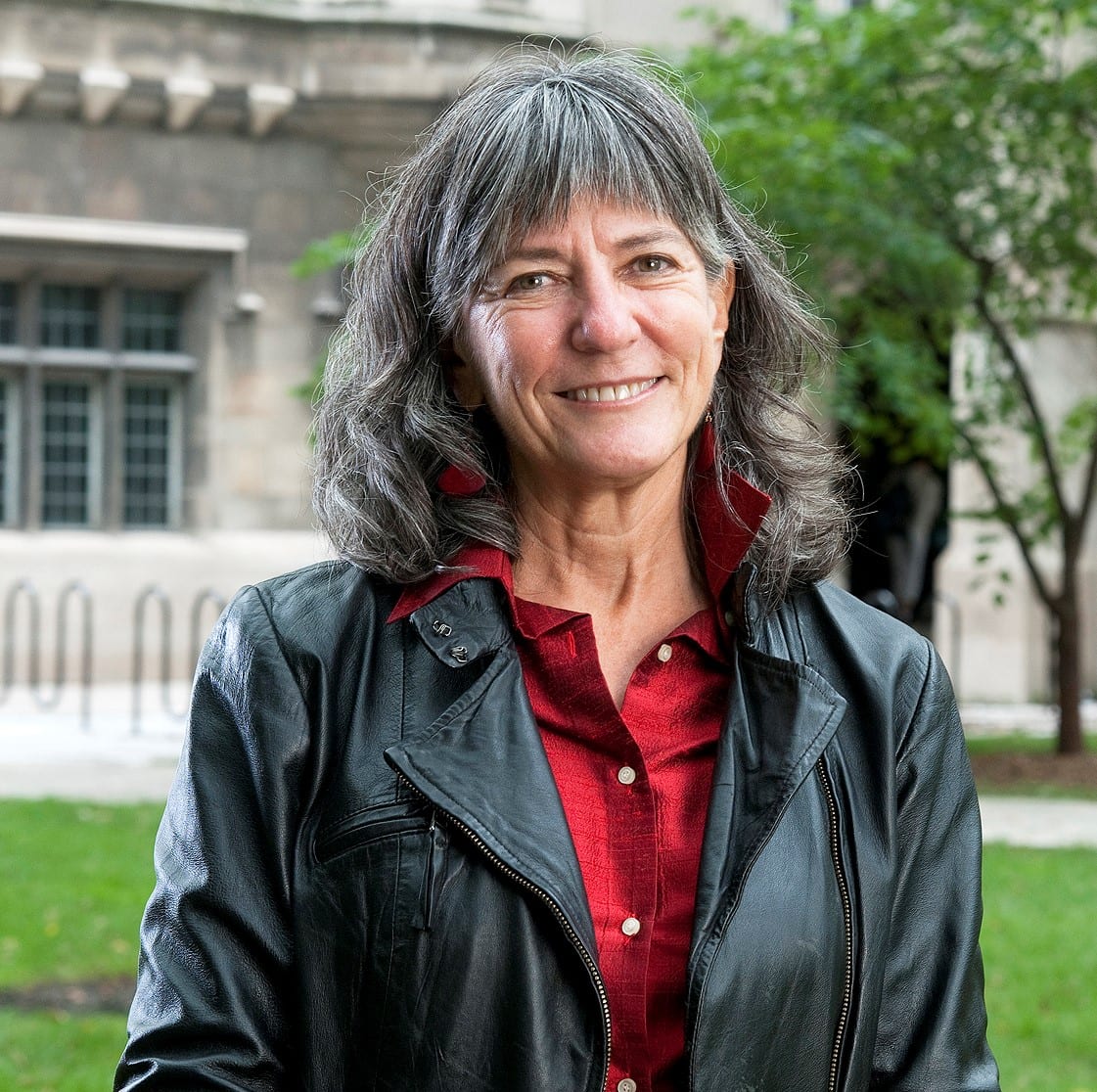
Susan Goldin-Meadow
Beardsley Ruml Distinguished Service Professor, Department of Psychology and Comparative Human Development
Interests: Language development and creation, gesture’s role in communicating, thinking, and learning
━━━━━━━━━━━━━
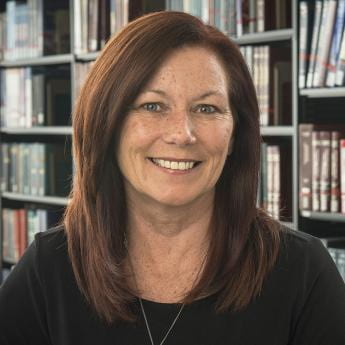
Deborah Gorman-Smith
Dean, Crown Family School of Social Work, Policy, and Practice, and Emily Klein Gidwitz Professor
Interests: Development, risk, prevention of youth aggression and violence
━━━━━━━━━━━━━

Guanglei Hong
Associate Professor, Department of Comparative Human Development
Interests: Quantitative methods, social causation, educational policy effectiveness
━━━━━━━━━━━━━

Tanika Island Childress
Acting Director, Urban Education Institute, Director and CEO, UChicago Charter School
━━━━━━━━━━━━━

Ariel Kalil
Professor, Harris School of Public Policy
Interests: Child cognitive development, parental engagement, economic inequality
━━━━━━━━━━━━━

Micere Keels
Associate Professor, Department of Comparative Human Development
Interests: Race-ethnicity, inequality, poverty, and the integration of quantitative and qualitative methods.
━━━━━━━━━━━━━

Katherine Kinzler
Professor and Chair, Department of Psychology
Interests: origins of prejudice, ingroup/outgroup thinking, influence of language and accent in forming of social groups, cultural learning, food cognition and moral psychology
━━━━━━━━━━━━━

Susan Levine
Rebecca Ann Boylan Professor in Education and Society, Dept. of Psychology
Interests: Cognitive development, development and plasticity of spatial skills, early quantitative development, language development and functional plasticity in children with early brain injury
━━━━━━━━━━━━━
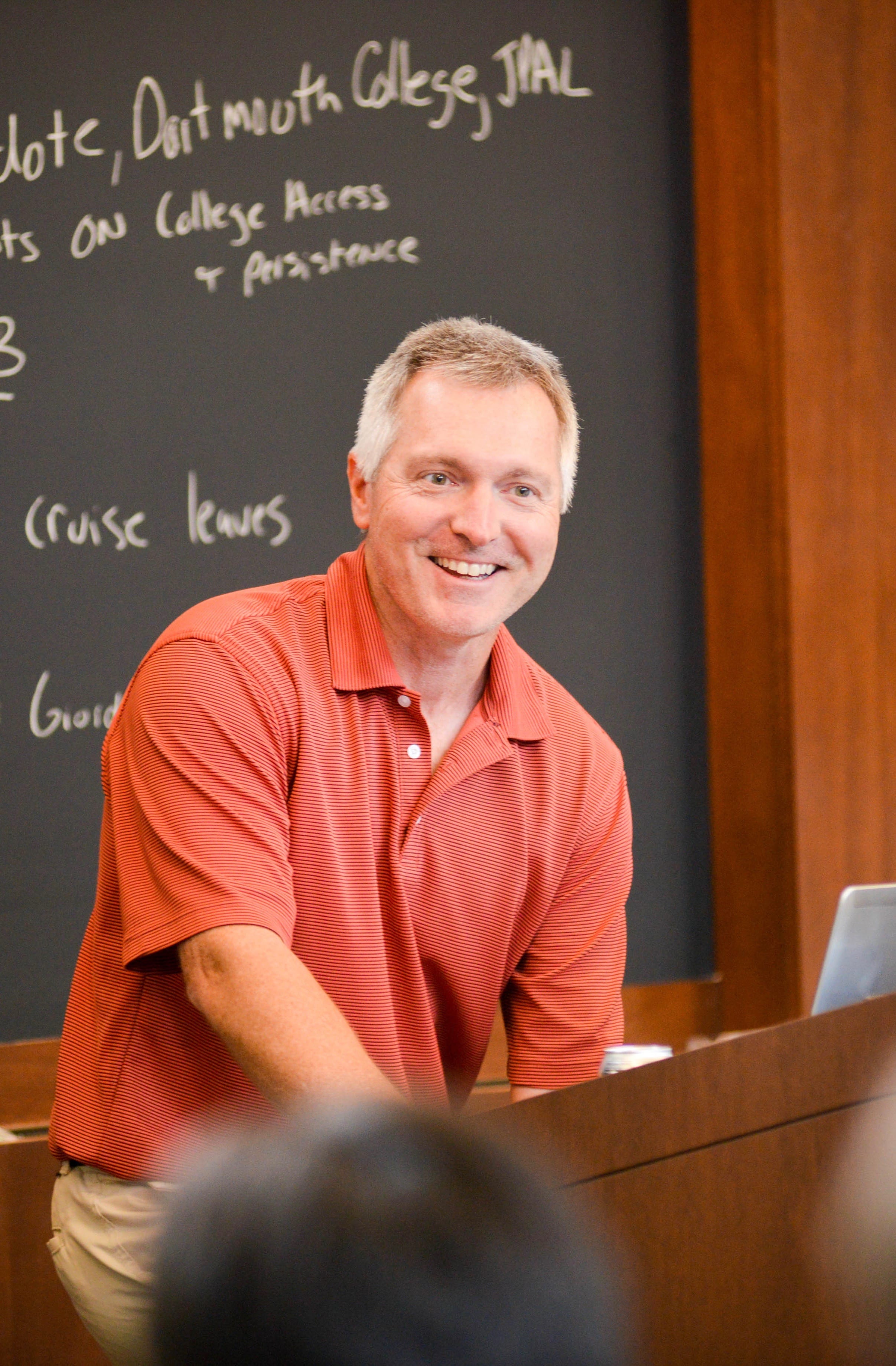
John List
Kenneth C. Griffin Distinguished Service Professor, Kenneth C. Griffin Department of Economics
Interests: Experimental economics, field experiments, education, youth violence, economics of charity, environmental economics, experiments in firms
━━━━━━━━━━━━━

Jens Ludwig
Edwin A. and Betty L. Bergman Distinguished Service Professor, Harris School of Public Policy
Interests: Education inequality, institutional interventions, behavioral science and education, data science and education
━━━━━━━━━━━━━
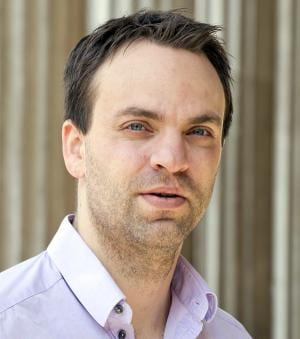
Magne Mogstad
Gary Becker Professor, Kenneth C. Griffin Department of Economics
Interests: Labor economics; public economics; analysis of social mobility and inequality
━━━━━━━━━━━━━

Stephen Raudenbush
Lewis-Sebring Distinguished Service Professor, Dept. of Sociology and the Harris School of Public Policy
Interests: Sociology of education and quantitative methods
━━━━━━━━━━━━━
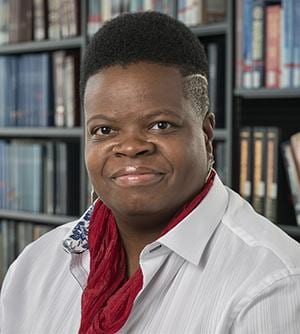
Shantá Robinson
Assistant Professor, Crown Family School of Social Work, Policy, and Practice
Interests: Education, Urban Schools, Race, Ethnicity, and Culture
━━━━━━━━━━━━━

Melissa Roderick
Herman Dunlap Smith Professor, Crown Family School of Social Work, Policy, and Practice
Interests: Urban school reform, high school reform, high-stakes testing, minority adolescent development, school transitions
━━━━━━━━━━━━━
Lisa Rosen
Associate Senior Instructional Professor and Director of Instructional Programs, the Committee on Education
Interests: Education and social inequality, designing urban schools to reduce social inequality in educational achievement, the social context of urban schooling, and the interplay of schooling and identity
━━━━━━━━━━━━━
Onnie Rogers
Associate Professor, Comparative Human Development; Principal Investigator, DICE Lab
Interests: Identity, developmental psychology
━━━━━━━━━━━━━

Dana Suskind
Professor, Departments of Surgery and Pediatrics
Interests: Language development, child development, cochlear ear implantation
━━━━━━━━━━━━━

Lesley Turner
Associate Professor, Harris School of Public Policy
Interests: Public Economics, Economics of Education, Labor Economics
━━━━━━━━━━━━━

Ming-Te Wang
Professor, Crown Family School of Social Work, Policy, and Practice
Interests: Motivation and Engagement, Racial Socialization and Discrimination, School Climate and Racial Disparities in School Discipline
━━━━━━━━━━━━━

Geoffrey Wodtke
Professor; Associate Director, Stone Center for Research on Wealth Inequality and Mobility
Interests: Inequality, poverty, and social mobility; social psychology; urban sociology; causal inference
━━━━━━━━━━━━━

Amanda Woodward
Dean, Division of the Social Sciences, and William S. Gray Distinguished Service Professor, Department of Psychology
Interests: Social cognition in infants and young children, cultural and community influences on children’s learning strategies, social-cognitive development.
━━━━━━━━━━━━━



